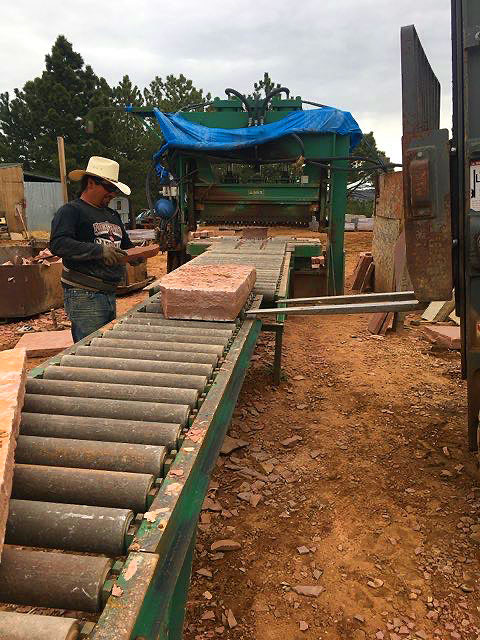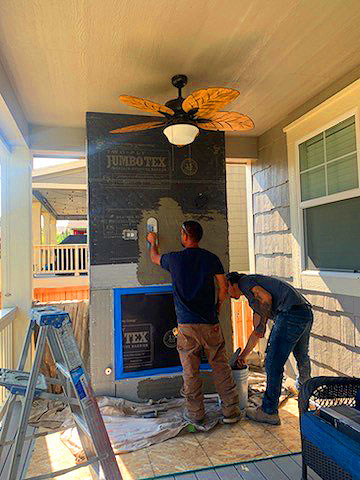Achieving high-quality masonry work requires a blend of skill, experience, and the right tools. Whether you’re embarking on a new project or maintaining existing masonry, having the right equipment and techniques at your disposal is crucial. In Colorado’s Front Range, where the weather can be unpredictable and the terrain varied, using the appropriate tools and techniques ensures that your stonework is both durable and aesthetically pleasing. Let’s dive into the essential tools and techniques that can elevate your masonry projects to the next level.
Essential Tools for Masonry Work
Investing in the right tools is the first step to ensuring quality masonry work. Here’s a list of must-have tools for any masonry project:
- Masonry Trowel: Essential for spreading mortar evenly. A good quality trowel with a comfortable handle makes all the difference.
- Hammer and Chisel: Used for shaping stones and bricks. A hammer with a pointed chisel is ideal for detailed work.
- Level: Ensures that your masonry work is perfectly horizontal or vertical. A long, accurate level is crucial for maintaining alignment.
- Joint Raker: For cleaning out old mortar joints before repointing. This tool helps to create a clean, stable surface for new mortar.
- Brick Saw or Angle Grinder: For cutting bricks or stones to the required size. A good saw or grinder ensures precision cuts without damaging the material.

Understanding Masonry Techniques
Mastering the right techniques is as important as having the right tools. Here are some key techniques that are fundamental to high-quality masonry work:
- Mortar Mixing: The foundation of any masonry project is the mortar. Mix your mortar to the right consistency – not too wet, not too dry. A good mix should hold its shape but still be workable. Use a mortar mixer for large projects to ensure consistency.
- Bond Patterns: Choosing the right bond pattern adds to the structural integrity and aesthetic appeal of your masonry. Common patterns include running bond, Flemish bond, and English bond. Each pattern has its unique look and strength properties.
- Cutting and Shaping: Precision in cutting and shaping stones or bricks is key. Use a masonry saw or chisel to achieve clean, straight cuts. Always wear protective gear, including goggles and gloves, to ensure safety.
Colorado-Specific Considerations
Working in Colorado’s Front Range comes with its own set of challenges. Here’s how you can tailor your tools and techniques to suit the local environment:
- Freeze-Thaw Resistance: Colorado’s winters can be harsh, with freezing temperatures followed by thawing. Use a high-quality, freeze-thaw resistant mortar mix to prevent cracking and deterioration.
- Material Selection: Choose materials that complement Colorado’s natural landscape. Local stones, like sandstone or limestone, can blend seamlessly with the surrounding environment. Ensure that your materials are sourced sustainably and are suitable for the local climate.
Safety First: Tools and Techniques for a Safe Worksite
Safety is paramount in any masonry project. Here are some tips to keep your worksite safe and efficient:
- Personal Protective Equipment (PPE): Always wear gloves, safety glasses, and a dust mask. For heavy lifting, use back supports and proper lifting techniques.
- Worksite Organization: Keep your tools and materials organized. A tidy worksite reduces the risk of accidents and increases productivity. Use tool belts and storage bins to keep everything within reach.
- Proper Training: Ensure that everyone on the team is trained in the correct use of tools and safety protocols. Regular safety briefings and training sessions can prevent accidents and improve the quality of work.

Maintaining Your Tools
Proper maintenance of your tools not only extends their lifespan but also ensures that they perform optimally. Here’s how to keep your masonry tools in top condition:
- Cleaning: After each use, clean your tools to remove mortar and debris. Use a wire brush or a damp cloth for stubborn residue.
- Storage: Store your tools in a dry place to prevent rust and corrosion. Toolboxes or storage sheds with proper ventilation are ideal.
- Sharpening: Keep your chisels, trowels, and saw blades sharp. Regular sharpening ensures precise cuts and effective mortar application.
Hiring a Professional Masonry Contractor
While DIY masonry projects can be rewarding, some tasks are best left to professionals. Here’s why hiring a skilled masonry contractor can be beneficial:
- Expertise and Experience: Professional masons have the skills and experience to handle complex projects with precision and efficiency.
- Quality Assurance: Hiring a professional ensures that your project meets all local codes and standards. They also have access to high-quality materials and advanced tools.
- Time and Cost Efficiency: Experienced contractors can complete projects more quickly and efficiently, saving you time and money in the long run.
Conclusion: Elevate Your Masonry with the Right Tools and Techniques
Whether you’re building a new patio, repairing a stone wall, or creating a custom fireplace, using the right tools and techniques is essential for achieving high-quality masonry work. By investing in quality tools, mastering essential techniques, and considering local conditions, you can ensure that your masonry projects are both beautiful and durable. If you’re in need of professional masonry services along the Front Range, Jose Rizo Masonry is here to help. Contact us today to discuss your project and experience the difference that quality craftsmanship can make.
